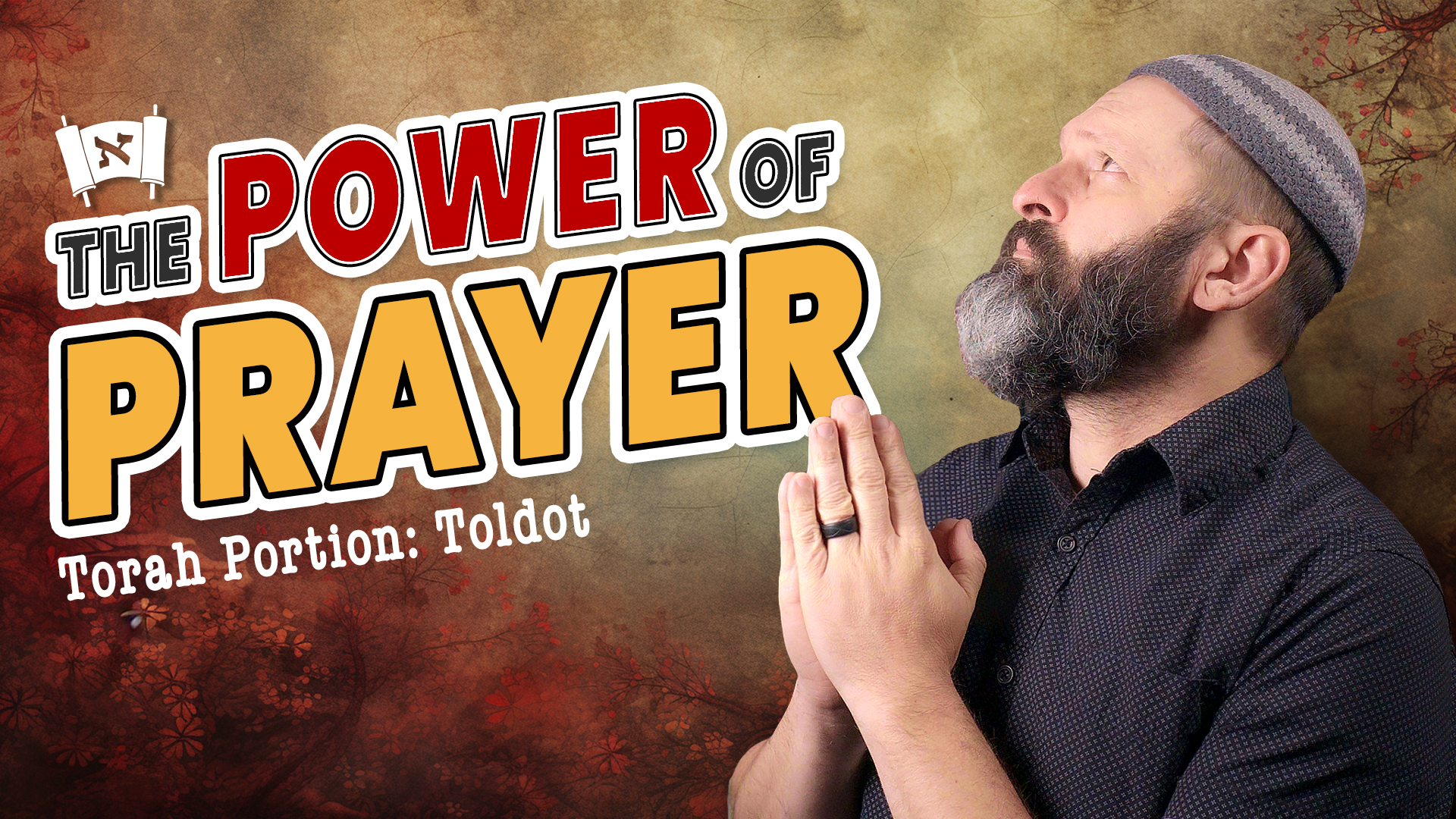The Prayer of the Righteous
Series:

Parashat Toldot (Genesis 25:19-28:9)
Parashat Toldot is essentially the story explaining how Jacob ended up receiving the birthright in place of his brother, Esau. At the very beginning of the story, however, Isaac and Rebecca have no children. Like, her mother-in-law, Sarah, Rebecca is barren. Just a few chapters over we also see that Rachel, the favored wife of Jacob, is also barren. All three of the matriarchs struggle with fertility, but yet all three eventually are able to conceive. Why is it that all three of these godly families struggled in this way? The Talmud proposes that it was because the LORD desired their prayers:
R. Isaac stated: Why were our ancestors barren? Because the Holy One, blessed be He, longs to hear the prayer of the righteous. (Yevamot 64a)
Is this truly the case? In Genesis 25:21 we read, “And Isaac prayed to the LORD for his wife, because she was barren. And the LORD granted his prayer, and Rebekah his wife conceived.” In Hebrew, the words “prayed” and “granted his prayer” use two different forms of the same root word (atar) that has the general meaning of pleading or supplicating. The way it is used in the second part of this passage, however, seems to be less passive than our English translations generally render it. Rashi suggests that it should read, “and he prevailed on the LORD,” commenting, “He (God) allowed Himself to be entreated and placated and swayed by him.”
The midrash suggests that Isaac’s entreatment “dug through” to Hashem and compelled Him to act on his behalf. It uses a play on words to compare the entreatment of Isaac to a prince digging a tunnel to his father. From this perspective, Isaac’s prayers were not only answered by Hashem, but they were also aided by Him:
R. Levi said: This may be compared to the son of a king who was digging through to his father to receive a pound of gold from him. Thus the king dug from within while his son dug from without. (Genesis Rabbah 63:5)
Another perspective of Isaac’s prayer is found in the Talmud. Using a play on words, Rabbi Isaac connects the word for entreat with the word for pitchfork to convey the concept that the prayer of the righteous has the ability to sway the Divine Will:
Why is the prayer of the righteous compared to a pitchfork? As a pitchfork turns the sheaves of grain from one position to another, so does the prayer of the righteous turn the dispensations of the Holy One, blessed be He, from the attribute of anger to the attribute of mercy. (Yevamot 64a)
James, the brother of our Master, testifies to this when he writes, “The prayer of a righteous person has great power as it is working” (James 5:16). He then explains that Elijah was a person whose prayers were answered miraculously, not because of some special ability he had in himself. His prayers were answered simply because he was in right standing with his Creator.
Bold tenacity, or chutzpah in Hebrew, is sometimes needed in our prayer. Our Master, Yeshua, taught his disciples several parables to convey this concept. His main point, however, was that we should be diligent in our prayers, never giving up. If we believe that our Heavenly Father loves His children, then we should be persistent in praying for those things that we desperately need:
Ask, and it will be given to you; seek, and you will find; knock, and it will be opened to you. For everyone who asks receives, and the one who seeks finds, and to the one who knocks it will be opened. Or which one of you, if his son asks him for bread, will give him a stone? Or if he asks for a fish, will give him a serpent? If you then, who are evil, know how to give good gifts to your children, how much more will your Father who is in heaven give good things to those who ask him! (Matthew 7:7–11)
Sometimes we may feel as if our prayers are falling on deaf ears. However, we must always remember that we have a loving Father who desires to hear His children and bless us with what we need.








